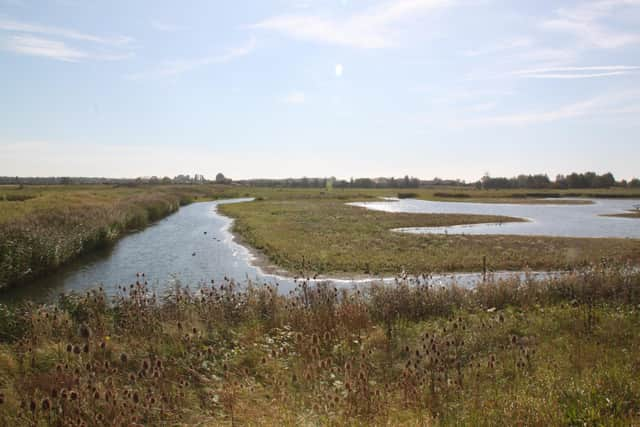North Cave Wetlands: Major avian flu outbreak affecting Yorkshire's largest colony of black-headed gulls confirmed at Yorkshire Wildlife Trust nature reserve
and live on Freeview channel 276
‘Numerous’ cases have been recorded at North Cave Wetlands, a nature reserve near Brough in the East Riding.
Avian flu has already decimated seabird populations on the Farne Islands in Northumberland in the past year, and wildlife charities has been concerned that the virus would spread to other conservation sites.
Advertisement
Hide AdAdvertisement
Hide AdA statement from the Yorkshire Wildlife Trust said: “We are aware that numerous dead black-headed gulls have been seen at North Cave Wetlands in the last few days.


"We have submitted samples for testing to provide confirmation, but we strongly suspect that this is an outbreak of avian (bird) flu. Similar outbreaks are being seen in gulls at other sites around the country.
"Our colleagues have never seen mortality this high before and – along with visitors who have reported the deaths – are distressed to see the impact this terrible disease has likely had on the gull colony. We are monitoring the reserve closely for other cases too.
"If confirmed, this will be the most significant outbreak on a Yorkshire Wildlife Trust reserve. We are also investigating and responding to other potential cases on our reserves across the region, including Potteric Carr near Doncaster.
Advertisement
Hide AdAdvertisement
Hide Ad"This disease will have an impact on a species that has seen population numbers decline in recent years, and at a crucial time of year when the gulls should be raising young. At North Cave Wetlands, Yorkshire Wildlife Trust provides critical habitat for Yorkshire’s largest black-headed gull colony, which has grown in the last decade.
"Sadly, avian flu is a disease that is spread between wild birds and aquatic birds like gulls, ducks and geese are considered most at risk. We can’t stop this happening, but we can help our wild birds to be healthy and thrive, to withstand disease outbreaks like this. They already face pressures from habitat loss, pollution and a decline in insects and other food sources.
“There are no plans to close our reserves at the moment, but we are monitoring closely and may have to restrict access or close parts of our reserves to protect wildlife. It is crucial that birds remain undisturbed as we know the stress of disturbance can increase transmission of the virus.”
Visitors have been asked not to approach dead or dying birds, keep dogs on leads and away from birds, and to report sightings to [email protected].
